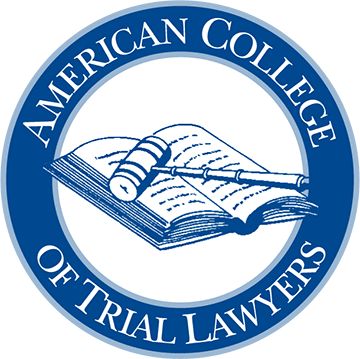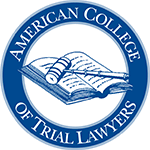Internet / Computer-Based Sexual Crimes
Summaries of charges, defenses, and outcomes for clients prosecuted in counties throughout Georgia and the Southeast.
Cases of this practice area
State v. John Doe (2017)
Charges: Computer Exploitation
States case:
The 34-year-old defendant used his cell phone to communicate with a person the defendant believed to be under 16-years-old through a social messaging application called "MeetMe!" The defendant was arrested, read Miranda and confessed to intentionally taking dirty to a 14-year-old girl. He faced 20 years in prison and a lifetime on the sex offender registry.
Judgement:
The defense learned the defendant was intellectually disabled and had an IQ of 65. However, the defendant could drive a car and had a history of working. Defense also learned that there was no actual child, rather an officer pretending to be a child and being quite aggressive in his portrayal. Through the defendant's historical documents of his disability, the defense was able to show that the defendant did not understand Miranda and that he did not intend to communicate with a child. The state saw that the defendant was treated unfairly and that he should not be prosecuted. The arrest charges were dismissed.
State v. John Doe (2014)
Charges: Computer Exploitation; Obscene Internet Contact; Criminal Attempt to Commit Enticing a Minor
States case:
The defendant not only communicated online via a Yahoo! chat room with a girl he believed was 15-years-old but then went to meet her to engage in sexual activity.
Judgement:
The defendant stated that he went into an adult “romance” chat room (ARC) to meet another adult woman to engage in sex online and then meet offline. He used deception about his age and looks and believed she was doing the same thing. Defense counsel spent two years pouring through the defendant’s online and offline history, through all computer related documents, and consulted with Internet behavioral experts who confirmed the nature of the online sexual environment, which supported defendant’s contention that adults engaged in age and gender deception in ARCs to play out various sexual fantasies. The state challenged the admissibility of the experts, but the Court ruled their testimony would aid the jury in understanding Online sexual behavior. One week before trial, the state offered to settle the case: they dismissed all sexual charges; agreed the defendant would not be required to register as a sexual offender; and allowed the defendant to serve 4 years of probation under Georgia’s First Offender statute, which will result in no conviction at the conclusion of his probation.
State v. John Doe (2012)
Charges: Computer Exploitation; Obscene Internet Contact; Distributing Obscene Material
States case:
The defendant not only communicated online via a Yahoo! chat room with a girl he believed was 14 old, but also had explicit sexual conversations with her and masturbated to her on his own video camera.
Judgement:
Defendant told defense counsel that he believed the girl was older because she was communicating with defendant during high school hours and seemingly had the ability to skip school practically all the time. Also, she reportedly was left alone at home for days on end while her mother traveled, which did not "add up." The girl also had an intimate knowledge of the highway system, was extremely sexually aggressive, made up random excuses why she could not send a picture, and then looked older in the pictures she sent. After a year of preparing the case for trial, using defendant's explanation of his belief as the centerpiece of his defense, defense counsel presented defendant's defense to the state on the eve of trial. Defense included the reports of Internet Psychology experts who would testify about the sexually charged and deceptive nature of the Internet; a report from a psychiatrist who stated the defendant was not a "pedophile;" and a report from a forensic computer expert who found no child pornography on defendant's computer. Ultimately, the state agreed to dismiss all the felony sex charges in exchange for the defendant's plea to Criminal Attempt to commit Cruelty to Children, a charge that would keep the defendant off the sex offender registry. He got probation.
State v. John Doe (2010)
Charges: Computer Exploitation
States case:
Defendant, an out-of-state resident, knowingly participated in online and telephonic sexually explicit chats with a person he believed was a 14-year-old girl, agreed to meet the girl at her home in Georgia while her mother was away to engage in sexual intercourse and oral sex, and then traveled to meet the girl. Defendant had Viagra and condoms with him at the time of his arrest. The “girl” was in fact an undercover agent posing as a 14 year-old.
Judgement:
The state’s prosecutor agreed to give the defense time to investigate the case before indicting the defendant, during which time the defense studied every line of communication between the defendant and the agent posing as the “girl.” Embracing the defendant’s belief that the “girl” was really a woman pretending to be younger – a woman that he intended to have sex with – the defense searched extensively for every fact in the case that supported defendant’s belief. After months of line-by-line comparisons, extensive study into online behavior and clinical studies about on-line behavior and on-line belief systems, and consultation with “internet psychologists and behavioral experts,” the defense met with the DA’s office on several occasions. Ultimately, they elected not to present their undercover sting operation to the Grand Jury and chose not to seek a criminal indictment.
loading …
loading …
loading …













